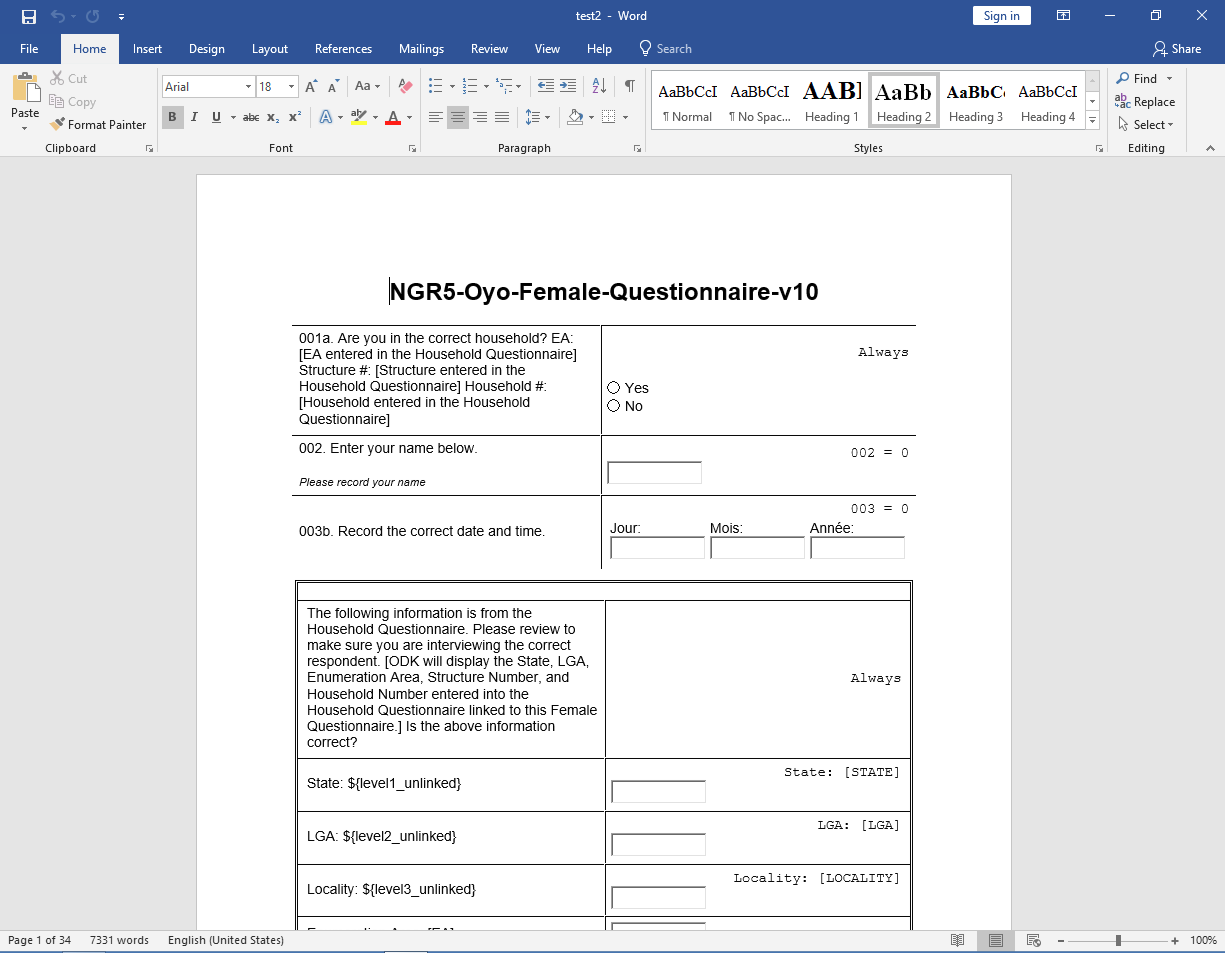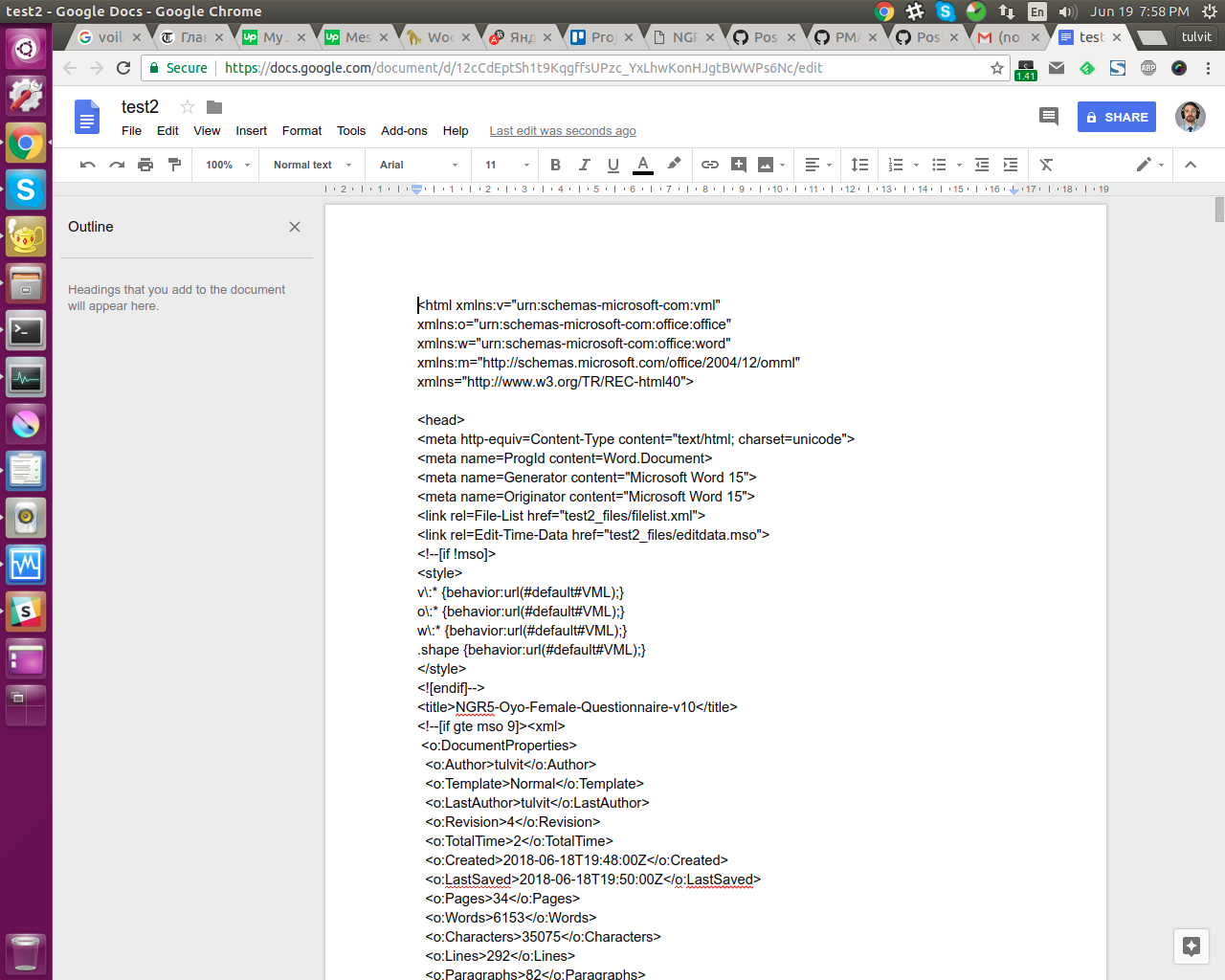How to reproduce the "bug"*
*"bug" in a quotation marks, because it's not a bug, just a different capabilities of different office engines in terms of converting web page into doc
-
Generating test.html from test.xlsx via the following command:
python3 -m ppp test.xlsx -p minimal > test.html -
Creating two copies of this file, test1.html and test2.html, and manually changing its extensions to .doc, so there will be 2 files: test1.doc and test2.doc (at this moment - it's two complete copies).
-
Now let's open test2.doc in MS Office:
 Looks good.
Looks good. -
Now we'll re-save this file (which is currently opened in MS Office) in doc or docx format, which is not important. What is important - while saving, the type of the document should be set to any "word/text document" and not to a "web page".
-
Ok, at this point we have 2 files. test1.doc, which is just a renamed test1.html and was never opened before, and test2.doc - which was renamed as well, but opened and resaved in MS Office. Now let's open both of these files in Open/Libre Office and GoogleDocs, and see the results.
-
Open/Libre Office test1.doc:
 Broken document, not expected results.
test2.doc:
Broken document, not expected results.
test2.doc:
 Not bad!
Not bad! -
GoogleDocs test1.doc:
 Not broken so much, but anyway not good at all.
test2.doc:
Not broken so much, but anyway not good at all.
test2.doc:
 And again, it's just fine.
And again, it's just fine.
Why does this happen? It seems that only MS Office's engine is capable to parse this HTML in a desired way.
So, this test.doc file becomes a good valid document file only and only when MS Office repairs/parses it. In other words, on first file open MS Office doesn't "open" it, but "repairs/parses/converts/whatever".
And without this "re-saving" procedure all we have is just an html file manually renamed to a document file.
It's not a problem if the end user will use MS Office. It'll be a problem, if anybody will use any other document editor/viewer other than MS Office, including GoogleDocs.

Description
This would be a new feature in that the PPP could output .docx rather than just .doc. It would also be an improvement to .doc, in that the generated .doc file (should we choose to keep it) in that the .doc file would be in its native format, rather than actually an .html document with a .doc file extension.
Currently, a .docx file needs to be created manually. Meanwhile, .doc file produced by PPP is buggy since it is just plain html underneath. This can be seen by opening the file in google docs or open office. If opened in MS Word, it appears to be fine. Though opening and saving in Word converts it into such a format that it is now compatible with open office and google docs. Ideally, this process should be streamlined so that the user does not have to do this manually.
Possible solutions
1) Lowriter for HTML to .doc/.docx conversion
Example:
lowriter --headless --convert-to docx ~/file.html2) Custom implementation of .doc/.docx generator using OOXML
3) Use workflow automation tools
https://blog.testproject.io/2016/12/22/open-source-test-automation-tools-for-desktop-applications/